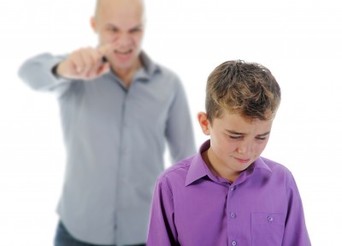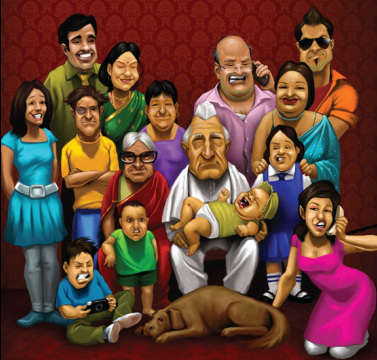Relationship Therapy, Bangalore
“When we expand our thinking and beliefs, our love flows freely. When we contract, we shut ourselves off. Can you remember the last time when you were in love? Your heart went ahhh!! It was such a wonderful feeling. It is the same with loving yourself except that you will never leave once you have your love for yourself. Its with you for the rest of your life, so you want to make it the best relationship that you can have.” ~ Louise L. Hay

There probably isn’t another word that describes almost every aspect of our lives more comprehensively that this one – Relationship! All day long the only task we really engage in is, building, sustaining, perpetuating and ending relationships. Think about it! We are talking about relationships with animate as well as inanimate beings. Therefore, you can have as beautiful a relationship with your car as with your close friend. Or as bad a relationship with your Blackberry as with your worst enemy! And essentially what really counts is the primary emotions evoked in that particular relationship.
For each of us, the word ‘Relationship’ itself might trigger a certain string of emotions, based on our experience - Love, happiness, joy, fulfillment, longing, misery, irritation, anger, guilt or perhaps intense fear! And depending on the type of emotion we attach to the concept of relationship, we might have varying subconscious reactions to it. 
Our behavior in a relationship is something that is patterned right from our early childhood. Our parents are the first demonstrators of what a relationship really is, through their relationship with the child as well as between themselves! Right from our infancy, we understand and accept what our parents define us to be and form our own sense of identity and self worth. A child who is appreciated and respected, grows up to be an individual who has a healthy relationship with his own self. As a result, he is able to operate out of a healthy sense of self-worth and self-esteem in every relationship that he gets into subsequently. On the other hand, a child who is ignored or ridiculed in his formative years, grows up to be an individual with a very low self-worth and self-esteem. This child has a very poor relationship with his own self. Therefore, even as an adult he is hardly able to operate out of a healthy self-image and eventually takes every relationship towards a failure.
In essence, what we are trying to establish is that our behavior in any external relationship is only a reflection of our relationship with our own self. What then, is a relationship? It is just a mirror!

Have you ever wondered why love and romance seems so easy in the movies? It is simply because when they get it wrong, they say ‘Cut’ and do it again, until they get it right. Most of us look at the perfectly edited scene in the movie and wish for things to be the same in real life. Perhaps we are conveniently forgetting all the practice and retakes that went into making that perfectly romantic moment.
Perfect marriages are not a myth! They just need to be created. The simple understanding that one’s partner is only reflecting his/her unhealed parts is enough to make one sit up and think. When things seem to go out of control, most of us find it extremely easy to point up the finger at the other one. But what we just might be missing is that maybe, the person opposite is only reflecting back to you your own darker parts, through his reactions to you! 
If that be the case, perhaps ridding oneself of his/her own ‘inner-shadows’ (the dark parts of you) might eventually lead to a better reflection of oneself in his/her partner. Things might start to look up after all. Choose to heal that part of you that is attracting a certain negative pattern in your marriage. You get only that which you attract subconsciously!
Ultimately, two people would be able to have a successful marriage if they are together, not because they NEED each other, but because they WANT each other.

A healthy marriage gives rise to a healthy Family System. Probably the family is the first impression of society that an individual might experience. Every member in the family is equally important and crucial for the healthy functioning of the whole. Just like how every part of our physical body is equally important. If the ‘head’, out of its ego, wants an extra supply of blood simply because it is the control point for the entire body, there might be some part of the body that is malnourished. Of what use is the richly oxygenated head, when the rest of the body is dysfunctional?
The social dynamics of a family decides what kind of adults we grow up into. For instance, a family system that has the tendency to ‘suffocate’ its members, simply by the presence of one overwhelming and controlling figure can probably give rise to rebellious tendencies in the other members. Or a family that is highly disentangled, with its members living like strangers could give rise to highly insensitive and self-centered people. A child growing up in a dysfunctional family system, might often carry forward incorrect understandings and beliefs onto his future relationships. This only creates a loop, where we actively re-create our lop-sided childhood for our children even without our knowledge.

Parenting is an instinctive behavior. There are no rules as such for good parenting. However, there couldn’t be a greater art than raising a child. Most parents strive ever so hard to strike a balance between being authoritative and loving.
The child is not just listening to and watching the parent. The child in fact perceives the parent at a very deep level. It is only the Conscious Mind of the child that develops later, but the subconscious mind of the child is fully formed and functional right from birth. And the child is constantly forming an opinion about the world, the parents, its surroundings and above all, its own self, right from birth. Based on the impressions the child forms right from birth, it exhibits different behavioral patterns. Parents who worry that their child is showing certain tendencies need to look at what messages they have sent out to the child. A step further would be to see what messages the child perceives from all around. The child is merely reflecting back to the world something that it has perceived. Understanding this would be the first step to resolve most issues that pertain to the Parent and Child relation. In short, all our relationship and behavioral issues stems from deep rooted subconscious patterns imbibed in our childhood. If we want to work on our relationships, we need to work on ourselves. Mahatma Gandhi rightly said, “Be the change you want to see”.
|

